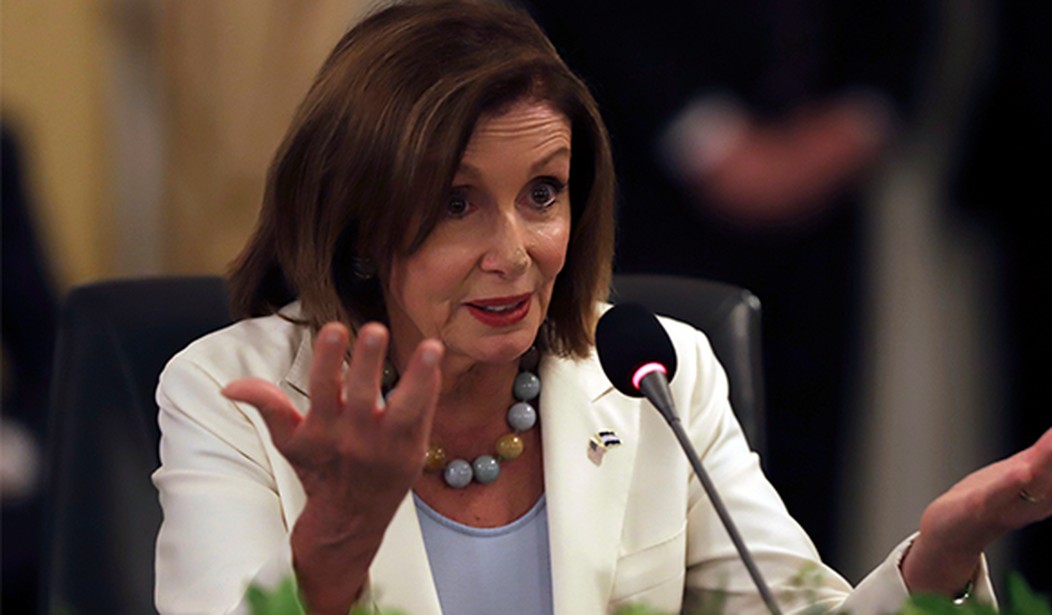The improvements in American medical care in a single lifetime are awe inspiring.
In his most recent book, columnist George Will notes that when he was born in 1941, “the principal expense of most hospitals was clean linen.” Since then medical technologies, such as MRIs and CAT scans, have been deployed to save lives. But perhaps more important is the development of drug therapies.
The revolution began with antibiotics, which made most infections an annoyance instead of a death sentence. Immunizations wiped out childhood diseases, while other drugs prevent chronic health problems such as high blood pressure, cholesterol and other invisible threats. The pharmacological breakthroughs are stunning and still unfolding.
Oddly, Democrats in Congress seem to want to punish drug companies for their success.
They’re pushing Nancy Pelosi’s bill, H.R. 3, which claims to be aimed at reducing prices for prescription drugs. What it would really do is impose socialism by using the power of government intervention to set prices.
For example, it would empower the HHS Secretary to “negotiate” what the bill calls a “maximum fair price” for 250 drugs. The various drugs involved would change from year to year, which would be confusing for all involved. In any event, there wouldn’t actually be anything to negotiate about. In reality, the bill orders the Secretary to set prices based on what other countries charge and order the companies to charge that amount.
What if the drug makers choose not to play along with this fake “negotiation?” The bill imposes a steep penalty, a “non-compliance” fee, equal to 75 percent of the gross sales of the drug the previous year. Supporters of the measure say that, “This steep, retroactive penalty creates a powerful financial incentive for drug manufacturers to negotiate and abide by the final price.” That’s a nice way of saying “we’ll punish anyone who doesn’t agree with our price-fixing plan,” and sounds like a socialist solution to a pricing problem.
Recommended
The bill would also ignore the fact that the prices of some things simply rise faster than the prices of other things. It would use the year 2016 as a starting point, and force companies to set current drug prices based on the rate of inflation since then. That makes no concession for any medical advances in the delivery or usefulness of the drugs in question, and gives companies no credit for drugs where the price has declined.
Nancy Pelosi and other sponsors of the bill seem to think the federal government can spend money more efficiently than private corporations can. They want to use the money the government takes in from this price-fixing to expand Medicare by adding vision, hearing and dental benefits. Those may be worthy goals, but giving people glasses has nothing to do with the cost of prescription drugs.
It’s certainly true that big pharmaceutical companies make a lot of money, and that makes sense because they’re selling valuable products. It’s also true that they invest a lot in research and development: $71 billion in 2017, up from $2 billion in 1980. Two-thirds of the money invested in developing new drugs comes from pharmaceutical companies.
Lowering prices for life-saving drugs is a good goal to aim for. However, there are better ways to do that than by imposing socialist solutions.
For example, lawmakers could take steps to eliminate the middle man in the sale of prescription drugs. “Under the current system, middle managers, like pharmacy benefit managers and insurers negotiate prices with the drug companies,” Dr. Marc Siegel wrote this year in The Hill. That gives the PBMs an incentive to promote more expensive drugs. Cutting out PBMs would cut prices, an idea that was floated in the most recent State of the Union address.
As Aesop might put it, the Democrat plan risks killing the goose that’s been providing golden eggs for decades. Americans deserve fair prices on prescription drugs. But only market-based reform, not socialist price-fixing, will deliver those prices for us.

























Join the conversation as a VIP Member